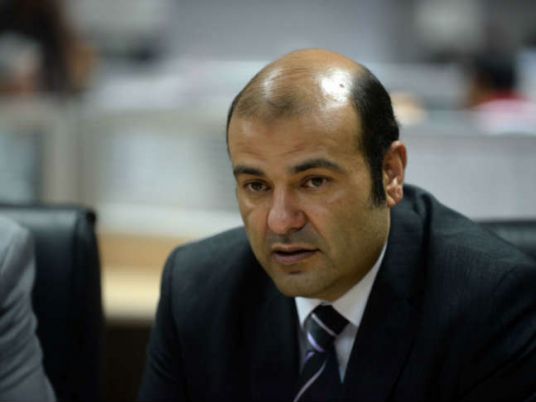
Supply and Domestic Trade Minister Khaled Hanafy said that President Abdel Fattah al-Sisi approved a proposal that he submitted to finance several national projects recently declared by government. The proposal suggested partnership with some Arab countries, international companies in field of grain storage equipments industry, or repeating the Suez Canal project investment certificates.
In an interview with Al-Masry Al-Youm, the minister said, “We seek carrying out three investment projects in Egypt at costs of LE3.2 million. The first project includes establishing the first factory for modern storage technology to serve the local market as well as exporting to Arab and African countries. The second project is about establishing 10 modern logistic areas to preserve the highly perishable products like vegetables and fruits. The third project is to renovate 164 barns to save around 30 percent of costs.”
After talks with US businessmen during Sisi's visit to New York, officials agreed to establish the first shopping city that will include eight international districts providing around 500,000 jobs, he said. Some LE40 billion are preliminary allocated for the project. The main proposed districts are for famous places in London, Paris, China, Spain, Italy and others.
Regarding the new subsidized bread issue, Hanafy said: "Total production of wheat reaches nine million tons. Local consumption is estimated at around 14 million tons. Government needs nine million tons to produce the subsidized bread. Around three million tons are taken from local production, while six million tons are imported annually. The new subsidized bread system will reduce amount of the imported wheat by 50 percent, making importing rates reduce from six to three million tons.”
All bakeries that joined the subsidized bread system obtained one third of their dues, according to Hanafy. The rest will be paid through payments until the end of the year. The dues are being transferred to the bank accounts of the bakers.
The ministry is working on resolving the delayed bread smart cards through purchasing more computers, hiring employees to get the citizens data on the system ahead of getting the cards, Hanafy said.
Hanafy pointed to negotiations with meat producers from other countries over keeping the same prices without increase. Negotiations with Sudan reached LE39.9 per one kilo of meat. "We target reducing the price to LE35 per kilo," the minister said.
Around 70 million citizens can disburse their shares of subsidized items through 18 million ration cards, Hanafy added. “The smart card will be made for non-holders of ration cards. Three companies are working on issuance of the bread cards. There will be cards for citizens, bakeries’ owners, factories, companies and others.”
All paperback ration cards will be turned to smart ones by end of November. Citizens should apply the required documents to get it within 15 days. The old cards will not be valid starting December.
If subsidy was in cash, prices would increase remarkedly, according to Hanafy. The ministry negotiated with producers for the sake of consumers. "When price was reduced from LE4 to LE3, that was considered as limiting for prices through increasing the purchasing power."
When asked if LE15 is sufficient for every individual, the minister said that it’s the same amount allocated in the old system. “Everyone should be aware that this is the best that could be made under the current state budget. However, I wish I could increase it. What I hope is that subsidy does not be LE15 per individual, as citizens are not the same in their needs. Thus, we are working on a map for incomes in Egypt to divide citizens into five or six categories. A minimum rate of LE3,000 for a family’s income is suitable to have a decent life. I hope that there will be difference for those who have lower incomes.”
Edited translation from Al-Masry Al-Youm




